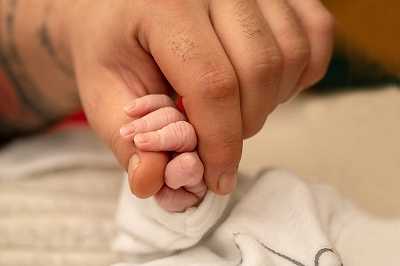Asthenospermia: Will the Children Born Has Health Problems?
Asthenospermia refers to a disease in which the number of sperm in males is relatively tiny, with abnormal morphology or low motility. Although asthenospermia in men may affect fertility, in most cases, this disease does not have a direct health impact on their children.

So, if a man suffers from asthenospermia, will their children have health problems?
The first thing to be clarified is that the fetus's health is directly related to the genes of both parents. The genes of both parents are undoubtedly the most direct factor affecting fetal health. If one parent has physical abnormalities, it is possible to pass them on to the child. If both parents suffer from similar diseases, the child is likelier to have such conditions.
Asthenospermia does not lead to genetic diseases. Although the number, morphology, and motility of sperm are affected, this will not increase the number of sperm carrying genetic disorders. Therefore, if there are no other genetic factors, children born to asthenospermia patients will not be more susceptible to genetic diseases than normal individuals.
Asthenospermia will have indirect effects on children's health. If the father suffers from asthenozoospermia, then the couple will need to take a longer time to conceive, or they need to adopt assisted reproductive technologies. During this process, couples may undergo medical examinations and treatments, such as artificial insemination or in vitro fertilization. These medical treatments may have a certain impact on the health of mothers and their children.
Clinically, factors that affect fetal health include:
1. Nutritional status of the pregnant women
The nutrition of pregnant women during pregnancy can dramatically affect the fetus's health. If a pregnant woman has balanced nutrition, the fetus will grow faster and maintain good health by absorbing the nutrients from the mother. If the nutrition of a pregnant woman is not comprehensively sufficient, the fetus may also grow poorly.
2. Hormones
Pregnant women's body hormones can also significantly impact fetal development, such as insulin, growth hormone, thyroid, etc.
3. Placenta
The placenta is the protector of the fetus. The fetus will be healthier if the placenta's blood circulation and metabolic function are in good condition. If the state of the placenta is too poor, it will affect the development of the fetus.
4. Medications
During pregnancy, pregnant women should try not to take medication. If medication is required, it must be taken under medical advice and not on their own because many drugs have harmful ingredients to the fetus. Pregnant women should take the medication with caution.
However, this does not mean that all patients with asthenospermia will cause health risks to the fetus when giving birth. If asthenospermia is found combined with some accidental factors, such as sperm structural problems, some sperm DNA damage, or some genetic disorders, it may affect embryonic development and may lead to fetal arrest.
Therefore, if a man suffers from asthenozoospermia, both couples should seek medical attention promptly and receive professional medical examinations and treatments. They can try traditional Chinese medicine treatment, such as Diuretic and Anti-inflammatory Pill. This medicine has bactericidal and anti-inflammatory effects, promoting blood circulation and resolving blood stasis, and has a good therapeutic effect on asthenospermia caused by diseases.
Other treatments are assisted reproductive techniques include artificial insemination, in vitro fertilization, and vasectomy recanalization. These technologies have been rigorously tested and validated, with a certain level of safety and effectiveness, which can ensure the health and safety of children.
It should be noted that assisted reproductive technologies are not foolproof and carry certain risks. For example, in IVF technology, multiple pregnancies, premature birth, low birth weight infants, and other situations may occur. Therefore, when couples choose assisted reproductive technologies, they should consider their situation and the advice from doctors and carry out early preparation and post-operation care carefully and responsibly to ensure the health and safety of their children.
You may also be interested in:
Men Have Asthenospermia and His Wife Is Pregnant, Will It Affect the Fetus?
Asthenospermia in Men's Reproductive Years: Can I Still Be a Father?
Asthenospermia, Just a Tonic Cannot Cure



